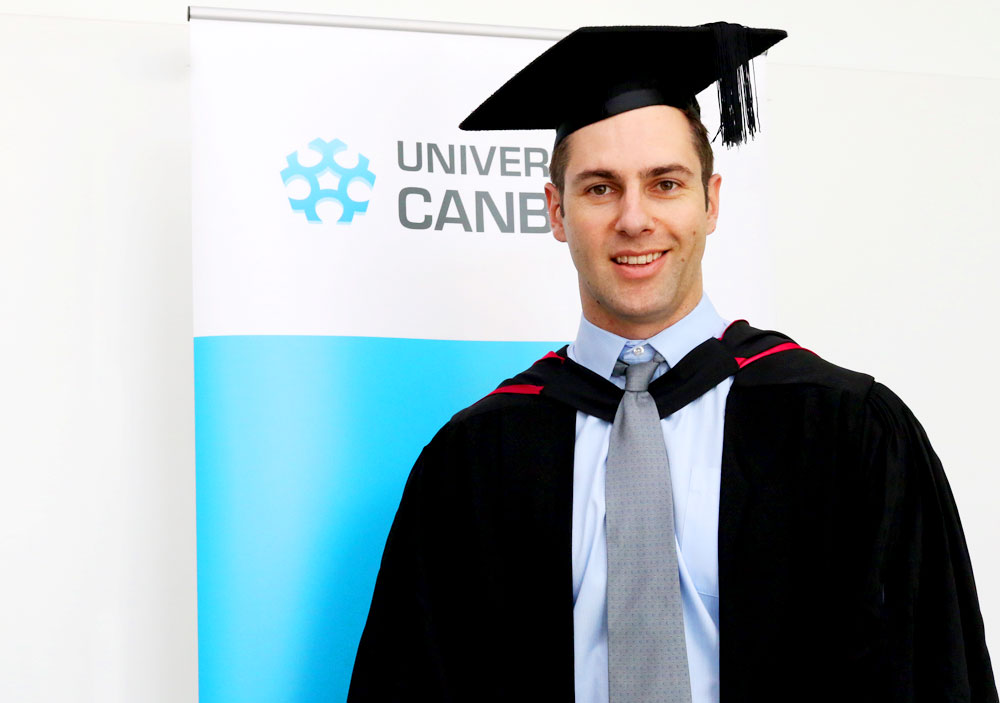Antony Perry
29 September 2017: For women, reducing the likelihood of Alzheimer’s disease could be as simple as taking more B-vitamins, according to a University of Canberra graduate.
Nathan D’Cunha, who will graduate with a Bachelor of Human Nutrition (Honours) on Thursday, has spent this year researching ways to help people avoid Alzheimer’s, the most common form of dementia.
Mr D’Cunha’s interest in dementia and Alzheimer is rather personal.
Watching his mother and grandmother suffer memory loss compelled him to join the fight against the disease that currently affects more than 400,000 Australians.
“My grandmother experienced a rapid decline due to vascular dementia during the last few years of her life and just over two years ago, my mother was diagnosed with early-onset Alzheimer’s disease,” Mr D’Cunha said.
“This led me to develop a personal interest in the genetic risk factors for Alzheimer’s which may amplify poor dietary choices.”
His work focused on identifying the role nutrition plays in the fight against the silent killer, specifically in relation to the link between the APOE4 gene, which increases the risk of Alzheimer’s, and nutritional factors.
Mr D’Cunha analysed the blood samples of 126 individuals with an average age of 77 years and found that in women, a diet rich in B-vitamins could help reduce the likelihood of an Alzheimer’s diagnosis.
“We found that the presence of the APOE4 gene and elevated homocysteine, which is an amino acid that acts as one on the building blocks of all proteins in the body, increased the risk of Alzheimer’s independent of each other, highlighting the importance of both in monitoring the risk of developing Alzheimer’s disease,” Mr D’Cunha said.
“Further analysis found that females can combat the threat posed by the APOE4 gene and decrease the likelihood of an Alzheimer’s diagnosis by consuming higher levels of folate and riboflavin, both of which are B-group vitamins.”
Mr D’Cunha is also the recipient of the University’s Herbert Burton Medal, which is awarded annually to a graduating student who has achieved outstanding academic results and has made a valuable contribution to the University and wider community.
“It is a great honour to have my name associated with Herbert Burton considering the immense role he played in establishing tertiary education in the ACT region,” he said.
Mr D’Cunha plans to commence his PhD at the University next year and continue his research into the effect of nutrition on brain glucose metabolism and the influence of the APOE genotype.
“I aim to contribute more to scientific literature to further our understanding of the role of nutrition in Alzheimer’s disease,” he said.
Read more coverage from the University of Canberra's most recent round of graduations:
Gender equality advocate chalks up another victory
Chancellor confers daughter's degree
Indigenous education champion honoured with UC degree



